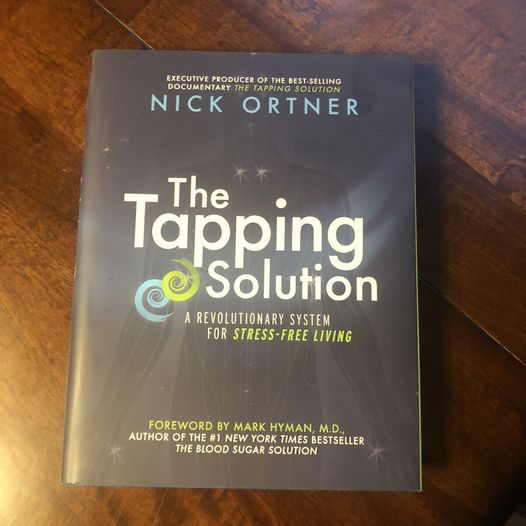"The Tapping Solution" by Nick Ortner introduces Emotional Freedom Techniques (EFT) or tapping as a method for alleviating stress and managing emotions. Ortner explores how tapping on specific meridian points can reduce stress, anxiety, and emotional distress by calming the body's response to stressors. The book offers practical insights into using tapping to address emotional challenges and physical symptoms associated with stress. It serves as a guide for individuals seeking a simple and accessible technique to promote emotional well-being and manage everyday stressors.
Here are 8 lessons from the book:
1. Understanding EFT/Tapping: Learn about the EFT technique, which involves tapping on specific meridian points while focusing on emotional distress or issues.
2. Stress Reduction: Use tapping as a tool for reducing stress, anxiety, and emotional turmoil by calming the body's response to stressors.
3. Emotional Regulation: Tap to address emotional challenges such as fear, anger, sadness, or trauma, aiming to alleviate their intensity.
4. Physical Symptoms: Explore how tapping can be used to alleviate physical symptoms often associated with emotional distress, such as headaches or muscle tension.
5. Mind-Body Connection: Understand the mind-body connection and how emotions can manifest physically. Tapping helps address both emotional and physical aspects of well-being.
6. Personalized Practice: Tailor tapping sequences to individual emotional issues or stress triggers, allowing for a customized approach to address specific concerns.
7. Consistency and Practice: Consistent practice of tapping can lead to more effective results. Regular sessions can help reinforce the benefits of this technique.
8. Self-Acceptance and Affirmation: Combine tapping with positive affirmations or statements that promote self-acceptance and emotional well-being.
"The Tapping Solution" offers a practical and accessible method for managing stress and emotional distress. It encourages individuals to explore this technique as a way to address emotional challenges, reduce stress, and promote a sense of well-being.




